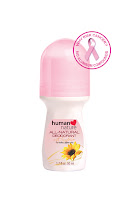As I said, I am a trainer for the brand, Human Heart Nature, and I wont hide that fact. I am not however, paid to do this blog. I just want to spend extra time hoping to educate random people.
I have been in the process of revising the product knowledge modules. I was thinking of ways on how to educate the average consumer on how to really understand the value of using natural products. I wont be a hypocrite. I still have a lot of chemical products which are the average ones you can buy in the grocery. But little by little, I am dispensing them off. So it seems that I myself, needs to know the significance of going for natural.
I thought, why not go through the ingredients list of an ordinary product, and google the ingredients one by one, and read if in fact, they are harmful. So first, I googled a photo of an ingredients list:
By the way, did you know that the ingredients are listed in order of decreasing proportions? Meaning, the first ingredient mentioned is the most abundant in the mixture, and last mentioned is the least.
Alright, so I googled the ingredients. First stop is cyclomethicone.
Cyclomethicone is a silicone-derived emollient. It makes the skin feel smooth by coating the skin, there by not letting the skin breathe. Hmmm...maybe that's how it also becomes an anti-perspirant. Cyclomethicone is also nonbiodegradable, so it really is just like plastic.
Next, Aluminum Zirconium Tetrachlorohydrex GLY.
Umm, okay. Here is where it gets more serious. So it says, to quote:
Aluminum was first recognized as a human neurotoxin in 1886, before being used as an antiperspirant. A neurotoxin is a substance that causes damage to nerves or nerve tissue.Upon analysis of cadaver brains of people suffering from Alzheimers, they found increased levels of aluminum, compared to non-Alzheimers cadavers. Also, rat lab studies show that aluminum is more easily absorbed through the skin, than through the digestive track.
Then it dawned upon me that I use these chemical deodorants every day since pubes... only to find out that they could possibly give me Alzheimers??? How ignorant was I? Of course I don't bother to google everything that I put on my skin, with the assumption that BFAD, and FDAs had taken care of it... And of course these manufacturers would say that they are using those ingredients on SAFE levels - but seriously, how do you define safe levels, on something that you use everyday, and can potentially accumulate in the body?
And of course not all bodies are the same. Another person might have strong tolerance for these ingredients, but another might be more vulnerable, and immediately absorb these ingredients. What safe levels are for one person may not be safe levels for another person.
I can google the rest of the ingredients, but I think the first two alone, are enough for me to stop using the chemical ingredients.
And I know what these mass-producing chemical brands do. They maximize profits by putting in the cheapest ingredients. Hell they care if consumers will get cancer or Alzheimers.
So that day, common sense prevailed. I bought my first ever natural deodorant from the office. =)
The product says it's not an anti-perspirant but it is a deodorant. You will still sweat even when you use it - which is a good thing because sweating is a natural way of the body to emit toxins. I love the smell of this product. I've been using the product for more than a week now and I am perfectly contented. Even though it is not an anti-perspirant, I haven't found myself all sweaty.
Plus, it is so affordable. It's just 84.75. (Other Alzheimers deos are even more expensive!)
Sources:
The ingredients list picture.
http://www.hallgold.com/toxic-chemical-ingredients-directory.htm#silicone
http://www.controlyourimpact.com/articles/antiperspirant-aluminum-and-alzheimers-disease/
And buy here if you want:
http://humanheartnature.com/buy/
(You can choose to be a dealer too)


